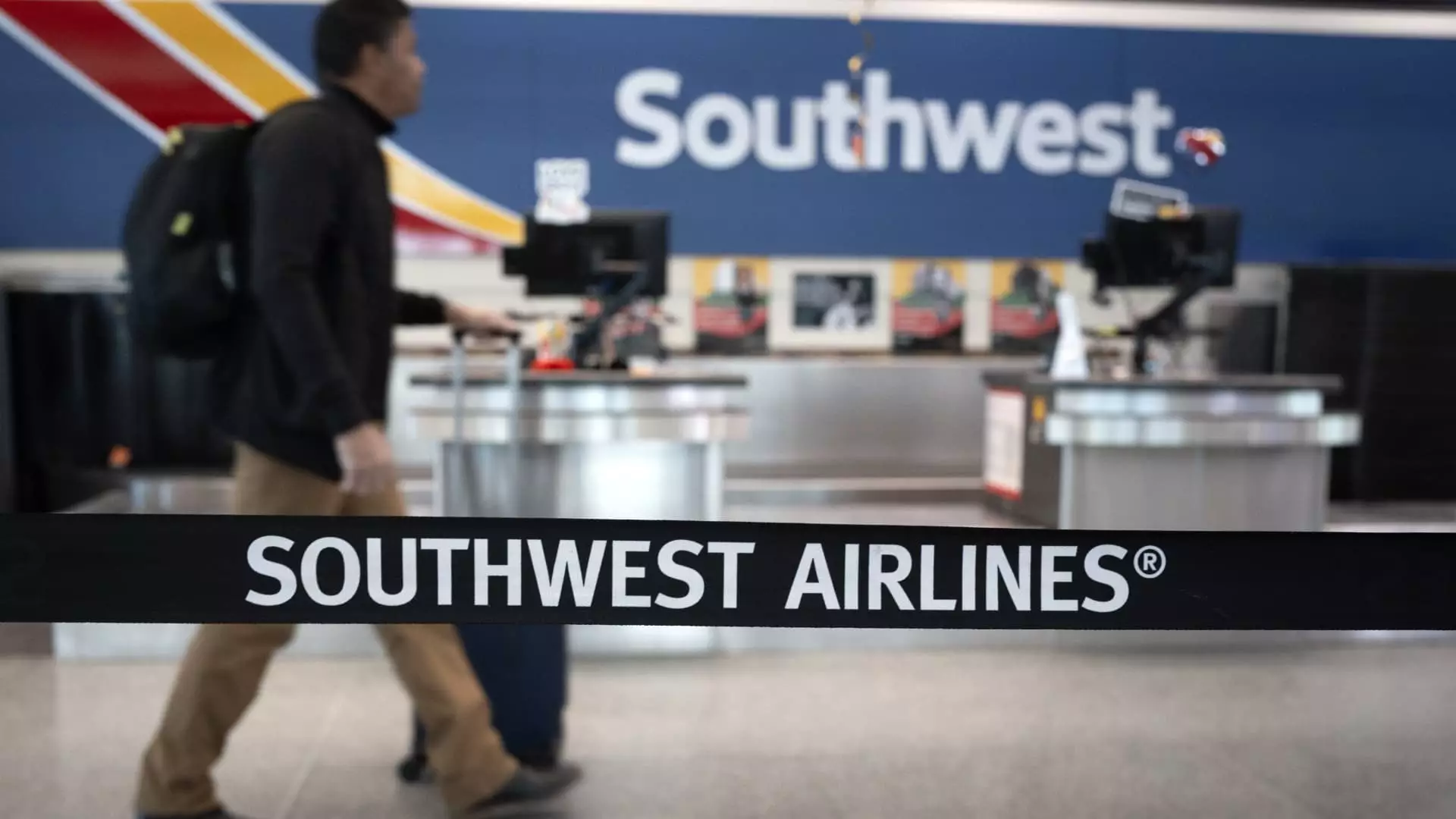5 Shocking Changes: Southwest Airlines Ditches a 50-Year Legacy

As the sun sets on an era marked by unprecedented customer goodwill, Southwest Airlines is gearing up to unveil a major shift in its business model that has left its loyal customers disheartened. After more than half a century of allowing travelers to check two bags free of charge, the airline will officially start charging for checked bags on Wednesday. This monumental decision not only challenges the very ethos that set Southwest Airlines apart in a highly competitive market but also reflects a deeper trend where customer convenience is sacrificed on the altar of revenue generation.
While it’s utterly bewildering that a company known for its customer-friendly policies would abandon such a treasured feature, one should recognize the overwhelming economic pressures propelling this change. With baggage fees amounting to nearly $7.3 billion for U.S. airlines last year, it is clear that Southwest’s decision comes amid intense scrutiny from stakeholders demanding increased profits. However, during a time when consumers feel every penny counts, this move can be perceived as a betrayal of the trust built over decades.
Caving to Investor Pressure: A Case of Bad Timing
Many will ask: why now? The decision to ditch the “two bags fly free” policy has largely been influenced by Elliott Investment Management, an activist investor that recently acquired a stake in the airline and has taken a proactive role in shaping its future. Though some might argue that a company must adapt for survival, the timing seems strikingly inadequate. As inflation continues to pinch consumers’ pockets and pent-up demand drives an uptick in travel, one would expect Southwest to double down on customer-centric policies, not retrench into a more traditional, profit-driven model laden with hidden costs.
Sure, business is business, but real loyalty often stems from going above and beyond for your customers. The introduction of charges for checked baggage reverts the airline back to a more conventional service model that mimics competitors like Delta, American Airlines, and United Airlines. This raises concerns about the long-term ramifications of this shift. Will Southwest still be the go-to option for budget-conscious travelers? Or will they transform into just another airline with fewer perks and more costs?
The New Economics of Air Travel: A Sinking Ship?
In this new regime, the costs for checking bags are not the only significant changes travelers will soon face. Southwest will also launch basic-economy tickets nestled alongside their more traditional fare classes. While some may argue that this introduces necessary options for a broader customer base, it starkly represents a diminishing of the value proposition once synonymous with the Southwest experience. With the option to change tickets vanishing and fare credits now expiring in just six months, loyal customers are being squeezed tighter than ever.
The expulsion of cherished policies and the introduction of restrictive fare classes creates an unsettling precedent in an industry where consumers should be the priority. Increasingly, the dream of accessible air travel appears to be giving way to obscure economic mechanisms designed for short-term profit rather than long-term customer satisfaction. Indeed, the rich history of customer service excellence at Southwest feels more and more like a relic of the past—a marketing inflection that was beautiful in theory but now seems ill-timed in practice.
Public Outcry: A Strained Relationship with Customers
What is perhaps most jarring about this shift is the palpable discontent among Southwest’s once-loyal customers. Social media burning with angry reactions at changes to longstanding policies displays a significant disconnect between corporate decisions and customer sentiment. On platforms where the airline once heralded its friendliness and adaptability, there now lies a coat of bitterness and resentment. Customers are no longer simply concerned about the new fee structure; they are expressing generalized distrust over the company’s future decisions.
Interestingly, CEO Bob Jordan publicly claimed that the wave of criticism had not affected booking rates since the announcement. But one cannot help but wonder if this stance is just corporate optimism couched in reality. Ignoring an entire segment of unhappy customers often leads to larger business implications, including a potential hit to brand loyalty and market share.
As Southwest undertakes these radical transformations to its business model, one can only hope it considers the long-term impact rather than chasing immediate profits. The question remains: will these changes ultimately alienate Southwest’s most devoted customers, trapping them between increasing costs and decreasing satisfaction? Only time will tell if the airline can navigate these choppy waters and find a new equilibrium, but one thing is certain—it’s a brave new world for Southwest Airlines, fraught with risk and uncertainty.





